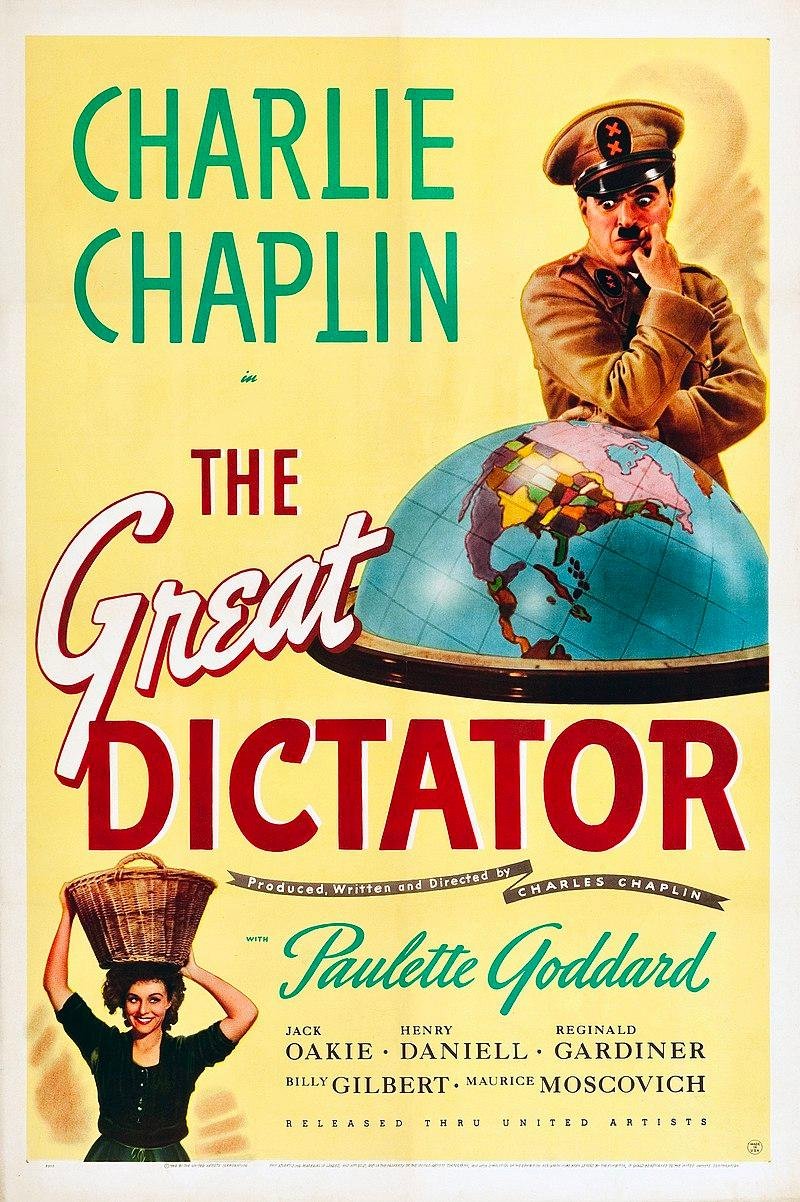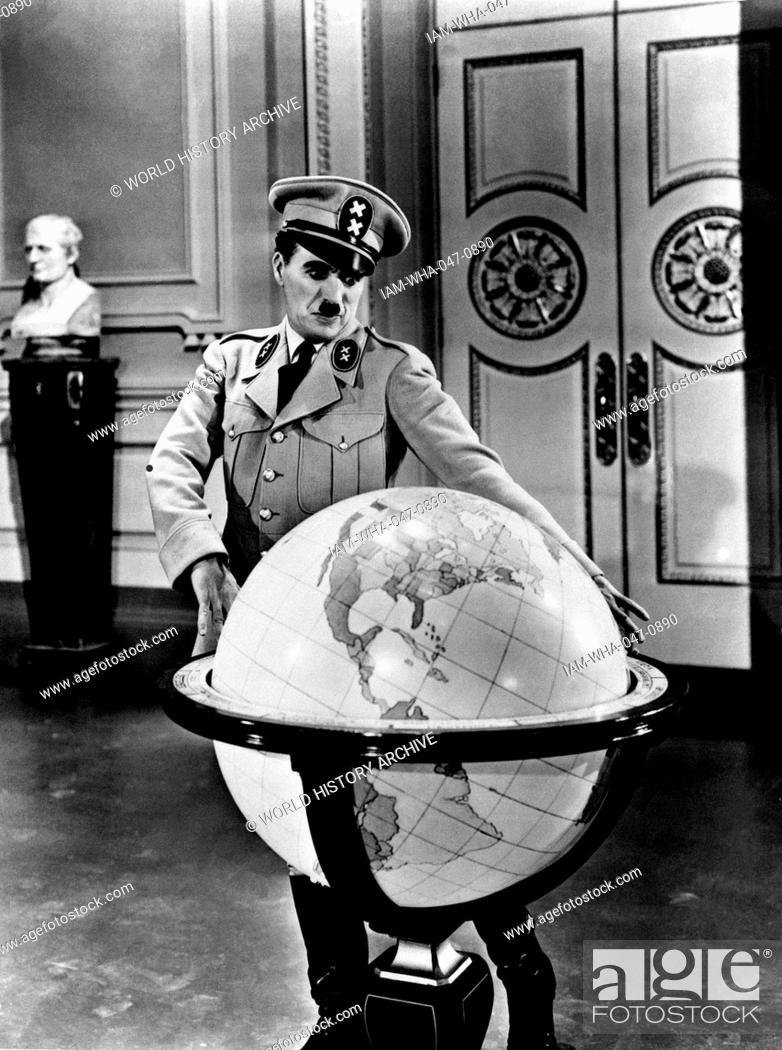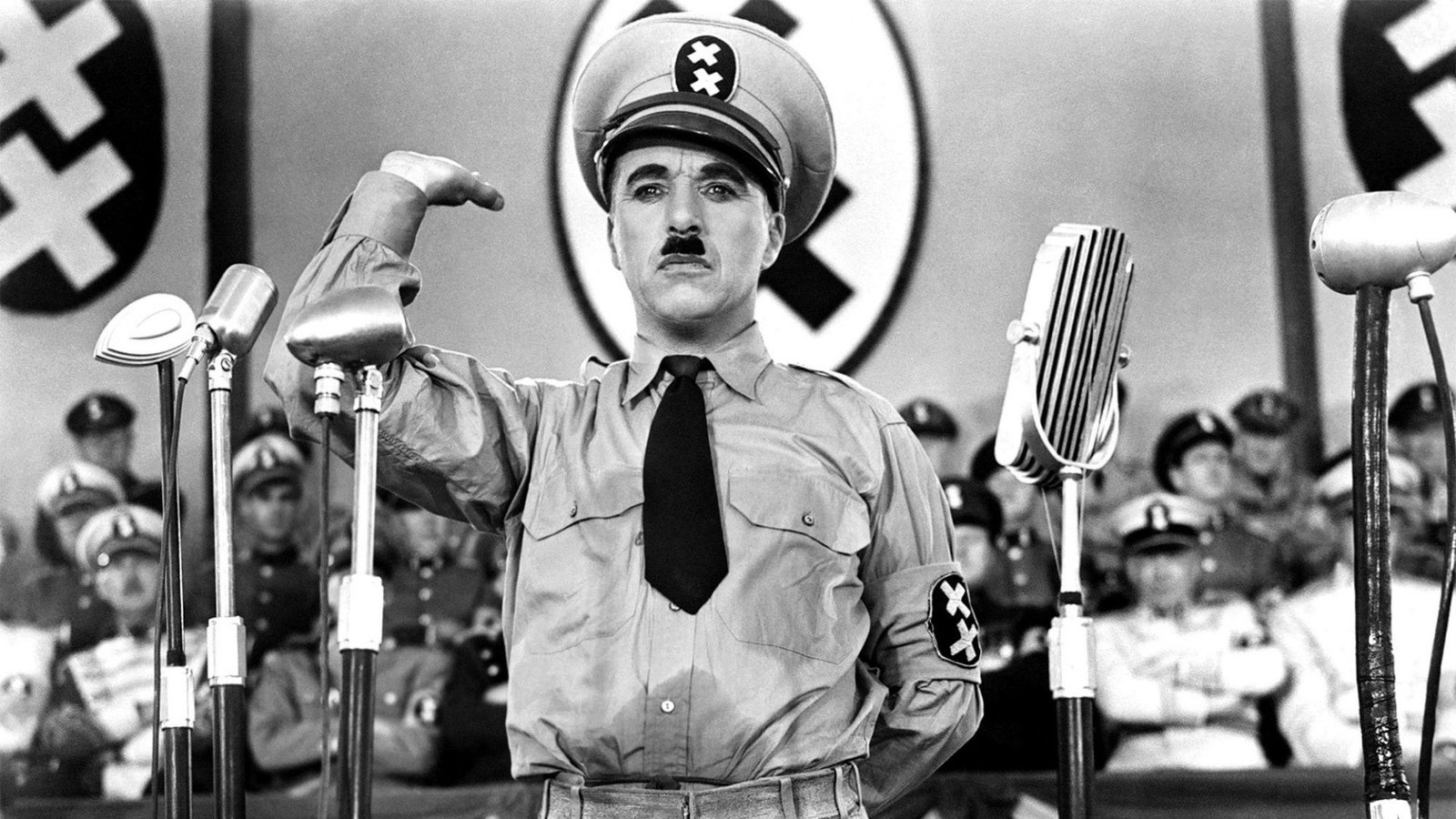The Great Dictator: Charlie Chaplin’s Masterpiece of Political Satire
Welcome, movie lovers! Today, we are going to talk about one of the most iconic films in cinema history: “The Great Dictator.” Charlie Chaplin‘s masterpiece of political satire was released in 1940 and it remains as relevant and powerful today as it was over 80 years ago. In this article, we will explore the impact of Chaplin’s film, its historical context, and its enduring legacy. So, grab some popcorn, sit back, and enjoy the ride as we delve into the world of “The Great Dictator.”
Welcome, movie lovers! Today, we are going to talk about one of the most iconic films in cinema history: “The Great Dictator.” Charlie Chaplin‘s masterpiece of political satire was released in 1940 and it remains as relevant and powerful today as it was over 80 years ago. In this article, we will explore the impact of Chaplin’s film, its historical context, and its enduring legacy. So, grab some popcorn, sit back, and enjoy the ride as we delve into the world of “The Great Dictator.”

Introduction to Charlie Chaplin
Charlie Chaplin is considered one of the greatest actors and filmmakers of all time. He was born in London in 1889 and began his career in the entertainment industry at a young age. Chaplin became famous for his character “The Tramp,” a lovable vagrant who wore a distinctive mustache, bowler hat, and baggy pants. However, Chaplin’s influence goes beyond his comedic acting; he was also a political activist who used his films to critique social injustices. In his masterpiece, “The Great Dictator,” Chaplin used political satire to denounce the rise of fascism in Europe. This film showcases his wit and comedic timing, while also demonstrating his ability to tackle difficult and controversial topics. Chaplin’s legacy continues to inspire filmmakers and actors today.
Overview of the film “The Great Dictator”
The Great Dictator is a 1940 political satire film written, directed, produced, scored by and starring the legendary Charlie Chaplin. The movie is a commentary on the rise of Hitler and fascism in Europe at the time. Chaplin plays two roles, one as a Jewish barber who is mistaken for the dictator of Tomainia, and the other as the actual dictator, Adenoid Hynkel. The film is a brilliant and hilarious satire on totalitarianism, war and anti-Semitism. It is widely considered to be one of the most important and influential films ever made, and a masterpiece of comedy and political commentary.
Historical background of the film’s release in 1940
The Great Dictator, a political satire film directed by and starring Charlie Chaplin, was released in 1940 during a time of great turmoil in Europe. World War II was already underway, and the rise of fascism and totalitarianism was a major concern for the world community. Chaplin’s film was a brave and controversial commentary on these issues, and it helped to bring attention to the atrocities being committed by the Nazi regime. Despite initial concerns about the film’s reception, The Great Dictator was a critical and commercial success, and it remains a powerful reminder of the importance of free speech and satire in times of political upheaval.

Analysis of the film’s political satire
The Great Dictator, a Charlie Chaplin masterpiece, is a brilliant political satire that provides a sharp commentary on the rise of fascism and the devastating effects of World War II. In this film, Chaplin brilliantly parodies Adolf Hitler, delivering a comical yet powerful message against the dangers of dictatorship, totalitarianism, and blind nationalism. With a keen eye for detail, Chaplin uses his signature comedic style to critique the political and social issues of his time, and even today, The Great Dictator remains a timeless classic that continues to inspire and educate audiences around the world.
Examination of Chaplin’s use of physical comedy in the film
In “The Great Dictator,” Charlie Chaplin masterfully uses physical comedy to satirize political power and authority. His exaggerated movements and facial expressions bring a lightheartedness to the film’s political subject matter, while also highlighting the absurdity and danger of tyrannical rule. Throughout the film, Chaplin’s use of physical comedy serves as a powerful tool to both entertain and educate audiences about the corrupting influence of power in society. From his famous globe dance to the iconic scene of his character’s mustache being shaved off, Chaplin’s physical comedy leaves a lasting impression on viewers long after the film has ended.
The film’s impact on audiences and critics at the time of its release
Upon its release in 1940, Charlie Chaplin‘s political satire, “The Great Dictator,” had a significant impact on both audiences and critics. The film was released during a time when tensions were high in Europe, as World War II was underway. Many critics praised Chaplin’s boldness in satirizing Adolf Hitler and the Nazi regime, while others criticized the film’s controversial nature. However, audiences were drawn to the film’s humor and heartfelt message of peace and tolerance. “The Great Dictator” was a box office success and remains a beloved classic to this day, showcasing Chaplin’s talent as both a comedian and a socially conscious filmmaker.

Discussion of the film’s relevance in modern times
When it comes to political satire in cinema, few films stand out as much as “The Great Dictator” by Charlie Chaplin. Even though it was released over 80 years ago, its relevance in modern times is undeniable. Through clever humor and poignant social commentary, Chaplin not only satirizes the totalitarian regimes of his time but also offers a timeless message of hope and unity for all humanity. This film still resonates with audiences today, as we continue to face political and social challenges around the world. “The Great Dictator” remains a testament to the power of cinema to inspire change and promote social justice.
Comparison to other political satires in film history
When it comes to political satires in film history, few can compare to the genius of Charlie Chaplin‘s “The Great Dictator.” While there have been countless satirical films that have tackled political themes over the years, Chaplin’s masterpiece stands out for its boldness, wit, and humanity. Through his iconic character of Adenoid Hynkel, a thinly veiled parody of Adolf Hitler, Chaplin was able to skewer the fascist regime of Nazi Germany while also offering a poignant message of hope and tolerance. Even today, nearly 80 years after its initial release, “The Great Dictator” remains a towering achievement in the world of political satire, and a testament to the power of cinema to provoke thought and inspire change.
Chaplin’s personal political beliefs and how they influenced the film
Charlie Chaplin was known for his personal political beliefs which were evident in his groundbreaking film “The Great Dictator”. The film was a political satire that aimed to ridicule Adolf Hitler and the Nazi regime. Chaplin’s strong anti-fascist stance was reflected in the film’s portrayal of the fictional dictator Adenoid Hynkel, who was a clear caricature of Hitler. The film’s final speech, delivered by Chaplin’s character, was a powerful call for peace and unity, as well as a condemnation of dictatorship and tyranny. Chaplin’s personal political beliefs were instrumental in shaping the message of “The Great Dictator” and its legacy as a cinematic masterpiece.
Conclusion and why “The Great Dictator” remains a classic in film history
In conclusion, “The Great Dictator” is a timeless classic in film history due to its poignant political satire and the masterful performance of Charlie Chaplin. The film’s message of hope and unity in the face of tyranny resonates with audiences even today, nearly 80 years after its release. Chaplin’s use of humor to tackle serious social issues was revolutionary for its time and paved the way for future filmmakers to use their craft as a means of social commentary. As the world continues to grapple with political unrest and division, “The Great Dictator” serves as a reminder of the power of film to inspire change and bring people together.
For more information about The Great Dictator Charlie Chaplin political satire, including movie details, cast information, etc..
check out the filmaffinity page.



